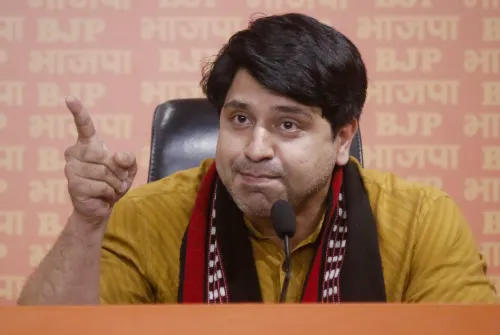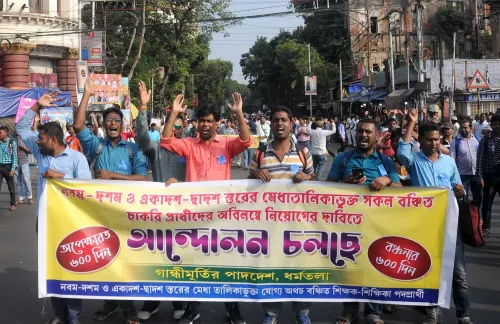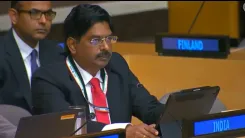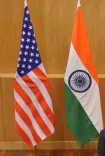JPC Chairman Critiques Owaisi's Actions on Waqf Bill, Labels it 'Democratic Assault'
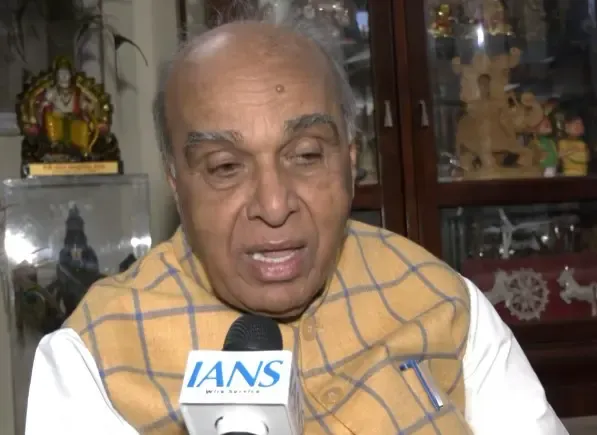
Synopsis
Key Takeaways
- Jagdambika Pal condemned Owaisi’s act in Lok Sabha.
- The tearing of the bill is viewed as an attack on democracy.
- The Waqf Bill aims to empower marginalized groups.
- Pal cited the need for amendments to limit unchecked powers.
- He highlighted the socio-economic issues faced by Muslim women.
New Delhi, April 3 (NationPress) Jagdambika Pal, the Chair of the Joint Parliamentary Committee (JPC) concerning the Waqf (Amendment) Bill, has publicly criticized AIMIM leader Asaduddin Owaisi for his act of tearing the legislative document within the Lok Sabha, denouncing it as an "assault on democracy" and asserting that the public will "never forgive" such behavior.
In an interview with IANS, Pal remarked, "Owaisi has shredded the bill. His actions are unconstitutional. To tear apart a bill proposed by a democratically established government is a profound insult to the populace of this nation. Quoting Mahatma Gandhi does not provide justification for this deed, and the nation will not forgive it. No individual has the right to dismiss the will of the people."
Owaisi, on the previous day, referenced Mahatma Gandhi's stand against unjust South African legislation while dramatically ripping the bill in Parliament, declaring, "In the spirit of Gandhi, I am also ripping this law apart."
In a strong response, Pal stated, "The public will not forget. No one is entitled to oppose a law introduced by the government with the people's endorsement. Disagreement is acceptable, but tearing it apart is a direct assault on democracy."
He went on to confirm that the bill will be presented in the Rajya Sabha, with optimistic expectations for its success.
Defending the necessity for changes in the Waqf Act, Pal contended that the current legislation grants unlimited authority that surpasses constitutional stipulations.
"This Bill has been in place for an extended period. Be it the Principal Act of 1995 or its 2013 amendment, it has provided them with unchecked power, which eclipses the Constitution. The UPA government in 2013 transgressed Article 300A, which safeguards the Right to Property," he asserted.
Stressing that the bill seeks to deliver justice to marginalized groups, Pal expressed, "Tomorrow marks a significant day for the impoverished, pastoralists, women, widows, and children across the nation. Individuals invest their hard-earned resources to guarantee that aid reaches the underprivileged. Waqf properties constitute the third largest holdings in India, following the railways and the military, yet they have not been beneficial to those in need. For the first time, a bill has been enacted to secure justice, aligning with the constitutional ethos envisioned by Babasaheb Ambedkar."
Referencing the findings of the Sachar Committee regarding the socio-economic status of Muslims, Pal highlighted that the literacy rate among Muslim women is merely 51.3%, while their higher education rate is a mere 6.9%.
He maintained that notwithstanding Prime Minister Narendra Modi's endeavors to uplift these communities, the opposition persists in unfounded accusations against the government.
Criticizing opposition figures, Pal stated, "Whether it’s Akhilesh Yadav or Rahul Gandhi, they view Muslims merely as a vote bank, aiming to fracture the community for political gains. However, it is now evident who genuinely wishes to empower them and who aims to mislead them."


